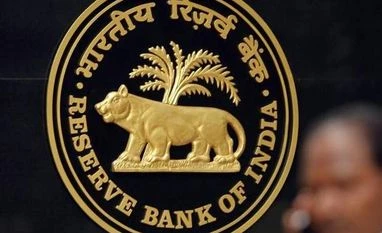Reserve Bank of India's (RBI's) updated 'prompt corrective action' (PCA) rules can potentially impact more than half of the NPA-laden state-run banks, a report said on Thursday.
"More than half of state-owned banks would breach at least one of the new thresholds, mainly owing to high NPLs, based on their latest financial reports," global ratings agency Fitch on Thursday said.
The rules, updated last week, suggest "greater willingness" to take regulatory action to address problems at struggling banks, but "implementation is only likely to be effective if it is matched by credible plans to address banks' significant asset quality issues and capital shortages," it said.
PCA was previously viewed as "an extraordinary step" which the central bank avoided but the same is set to change now, Fitch said.
Under the previous framework, the RBI's powers were restricted to bank lending but the scope for possible regulatory actions has been broadened under the amended framework, it said.
"But it remains uncertain to what extent the RBI will use the tools it has just made available," said the report.
More From This Section
It said the central bank has tightened the thresholds on capital ratios, non performing assets, profitability and leverage at which the banks would enter the new PCA framework.
This, the note said, is an "acknowledgement" of the high asset quality stress and more banks are in need of regulatory intervention.
Through the new rules, the RBI has given itself "greater discretion" in terms of the measures it can use to intervene in banks once they fall under the PCA framework, it said.
This suggests that RBI has recognised the need to take corrective action at an earlier stage when banks run into difficulties, it added.
In contrast, the previous PCA explicitly reserved the most interventionist actions for banks that had breached more extreme thresholds, the report said.
"It is possible that intervention could involve forcing banks to conserve capital, if other actions do not address problems," it added.
Two circulars issued on Tuesday, which are already causing dent to banks' bottomlines, point to RBI's "seriousness" and they will weigh on banks' earnings in the future, the report said.
"Should the additional disclosures reveal weaknesses that are greater than expected there could be further pressure on the banks' Viability Ratings," the agency warned.
Stating that RBI cannot address the issues on its own, the note drew attention to the need for recapitalisation as a large number of dud assets get recognised.
"Significant efforts to resolve bad loans, for example, would leave banks in need of recapitalisation, given that haircuts and increased provisions would be required. State banks are generally in a poor position to raise new capital, which makes them largely reliant on the government for recapitalisation," it said.
It said the RBI can identify weak banks as candidates for mergers, but government support is essential for this.
)